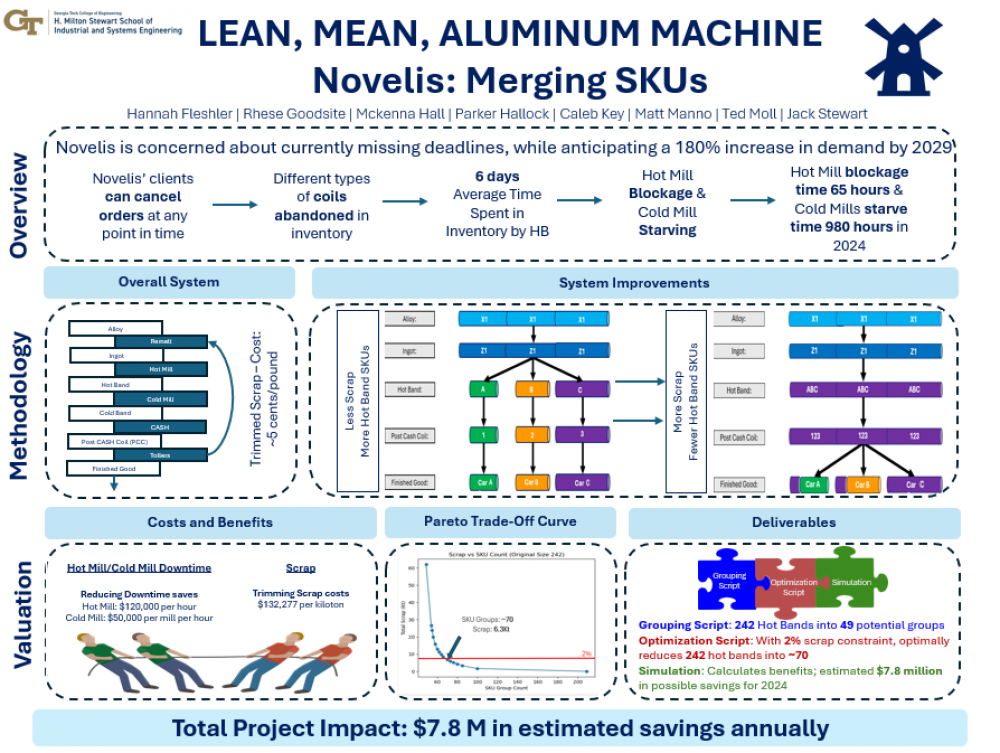Client Context
Our client Novelis is a world-leading aluminum recycler and producer of flat-rolled aluminum coils. Novelis allows their customers to cancel orders at any time. This policy gives Novelis a competitive edge but introduces problems into their supply chain. When order cancelations occur, the work in progress (WIP) from an order becomes “stranded” and is left to sit in inventory until another order calls for that specific category of WIP.
Project Objective
Stranding is most problematic with hot bands in inventory at Novelis’s primary plant in Oswego, New York. When Oswego’s hot band inventory fills up, the Hot Mill’s production is blocked, forcing it to shut down. Upstream Hot Mill downtime can affect the Cold Mill, which may become starved for hot bands that it can process. Downtime at these machines is worth millions of dollars to Novelis.
Design Strategy
Our team’s solution is to reduce the variety of hot bands that Novelis manufactures by consolidating SKUs that share the same alloy, quality code, and exit gauge. This improves system flexibility by making it easier for stranded coils left in the hot band WIP inventory to be repurposed for another order. However, consolidation comes at a cost: extra width is trimmed off at the end of the process to fit final product specifications. Novelis must pay 6 cents per pound of trimmed scrap. We balance the trade-off between the benefits of consolidating SKUs and the downside of increased scrap.
Deliverables
The first deliverable is a python script that identifies groups of all the hot bands that can be consolidated feasibly. Novelis’s goal is to minimize the number of unique hot bands it manufactures while staying below a set level of scrap production. Therefore, the second deliverable, an integer program, uses the first deliverable’s groups to find the optimal set of SKU consolidations. To justify these changes, Novelis needs evidence that the benefits outweigh the cost of scrap. The final deliverable is a model that simulates production at the Oswego Hot Mill and Cold Mill. This simulation can be used to calculate the expected reductions in downtime hours for a given set of consolidations. The monetary value of these reductions is based on the machines’ contribution margins and production rates.
Value and Impact
Using these deliverables, the team modeled how Novelis would have performed had it implemented the recommended groupings at the start of 2024. With these changes, Novelis would have experienced an expected net benefit of $8 million in the year 2024. This represents a lower bound on the benefits of this project, since Hot Mill blocking will only increase as demand and finished goods variety grows. Furthermore, the increase in flexibility due to SKU consolidation has other benefits, such as improved service levels and lower holding costs, which are harder to quantify.


